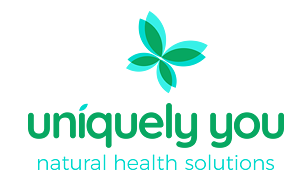The New Year is an ideal time to consider a health reset involving healthy detoxification to help support recovery from the excesses of Christmas and the holiday season, and to set up for a healthy, energised year ahead, hopefully leading to a lifetime of wellness.
It’s a great time of year to restart routines and reinvigorate health goals. But what is meant by detox? Why would I need a detox programme? And what’s involved?
What is detoxification?
Detoxification is a natural metabolic process your body undertakes continuously. The body has perfectly capable systems in place to remove waste, eliminating the environmental, dietary, and internally created toxins we’re all exposed to daily. The detoxification process converts toxins into less harmful substance before they are excreted from the body.
In a healthy person, the liver, digestive system, kidneys, lymphatic system, skin, and lungs work harmoniously together to constantly manage the toxins we encounter each day.
So why would I need a detox programme?
Constant toxin exposure can put a strain on the body’s systems, compromising the body’s ability to flush problematic substances out of the body. Toxins can build up over time to an unhealthy level as the body struggles to cope.
Signs your body may be struggling with a toxic burden include:
- Abdominal bloating
- Difficulty losing weight
- Skin issues
- Acid reflux/heartburn
- Feeling tired or inflamed
- Difficulty digesting fatty foods
- Overheating, excessive perspiration
- Hormonal issues
- Allergies and food intolerances
- Headaches
- Autoimmune diseases
Examples of toxins in our everyday lives include food additives, chemicals in our water, pollutants in the air, chemicals in personal care and cleaning products, herbicides, pesticides, medications, alcohol, caffeine, tobacco, and even toxic emotions and stress. Toxin overload can also arise from increased numbers of unhelpful gut bacteria, or food reactions due to intestinal hyper-permeability or ‘leaky gut’.
Toxic overburden can affect the gut microbiome, cause a leaky and inflamed gut lining, creating a heightened (and inappropriate) immune and allergic response, as well as disrupt hormones, impede cellular function, in turn compromising energy levels. Chronic, or long-term health conditions can develop.
How does a detox programme work?
Detox goals
The overriding goal is to support the body’s systems to do their job more effectively.
Supporting ongoing healthy detoxification is a cornerstone naturopathic concept and can be a turning point in regaining health and vitality.
An effective detox programme will:
- Identify and reduce incoming toxic load to relieve the toxic burden on the body
- Improve toxin resistance, by enhancing the body’s capacity to detoxify
- Neutralise reactive toxins created by harmful free radicals
- Optimise toxin excretion
What’s involved in a detox programme?
There are many types of detoxes, with varying degrees of difficulty, safety, and results, including unsustainable fad ‘detox diets’ with questionable safety and results that tend to be short-lived at best.
To be safe, and achieve the best possible health outcomes, a reset detoxification programme in a naturopathic context utilises a comprehensive, individualised approach. A ‘one size fits all’ model simply doesn’t make sense because we’re all unique.
A reset detox will focus on sensible new dietary and lifestyle choices, herbal medicine, and nutritional supplementation, addressing key aspects to rebalance the body.
Why see a naturopath?
A registered, trained, qualified naturopath or medical herbalist will ensure herbal medicine and nutritional supplementation is safe, appropriate, and effective for you.
A naturopath will help you to identify and reduce your toxin load, recommend the key dietary and lifestyle changes that are relevant and achievable for you, and will bring greatest benefit to your health, energy, and wellbeing for the longer term.
The body’s capacity to detoxify will be improved through foundational liver, gut, kidney, and cellular detoxification support, and working to promote healthy gut flora balance, to ‘reset’ your health and support strong digestion.
Gut focus
Depending on the types of symptoms being experienced, greater emphasis may be placed on optimising gut health and function.
The gut microbiome has a strong influence over all aspects of health and wellbeing. Optimising gut health as part of a detoxification programme can help to improve and manage not only digestive, but non-digestive type symptoms as well.
Where unhelpful gut bacteria are likely contributing to symptoms, emphasis is also placed on optimising gut health and function.
Extra support if needed
If someone has experienced a high chemical exposure due to lifestyle habits, or living or working situation, additional support will be added to enable chemical clearance.
How long does healthy detoxification take?
Timeframes will vary from person to person, however most programmes need to run for approximately four to eight weeks. Most new dietary and lifestyle habits will ideally become permanent, creating lasting change, and sometimes herbal medicine and nutritional supplementation is continued at some level as helpful ongoing ‘maintenance’ support.
Detoxification relies on specific nutrients for optimal performance
Supplementation with targeted nutrients and herbs supports optimal liver, digestive, kidney, and lymphatic function, healthy detoxification, and overall health.
Most toxins are fat soluble and cannot easily be excreted. They must first be metabolised and converted to water soluble form. Toxin metabolism is a complex process involving many biochemical reactions, and specific phases – all of which must be functioning effectively and harmoniously to ensure optimal detoxification. Most detoxification processes occur within the cells of the liver and the cells lining the intestines.
The liver functions in two phases to transform toxins so they can be eliminated from the body.
Phase I liver detoxification transforms toxins into reactive, intermediate metabolites which are more toxic and more reactive than the original substance. These need to move swiftly through phase II detoxification, to prevent oxidative damage, and to render the toxins water soluble, ready for excretion.
Phases I and II must be in balance to function optimally. In essence, it’s vital that phase II is functioning well to be able to keep up with phase I, so the body is protected from reactive toxins, oxidative stress, and inflammation.
Antioxidant herbs and foods such as Milk thistle, Schisandra, Rosemary, Turmeric, broccoli, broccoli sprout, and green tea are useful considerations to help balance phase I and II, enhance phase II liver detoxification, and to neutralise reactive toxins created by harmful free radicals, preventing oxidative damage and inflammation.
Phase III detoxification refers to perhaps the most critical phase, which ensures the toxins are removed from the body – through the kidneys into urine, or via bile flow into the bowel via faeces.
Healthy liver, kidney, and gastrointestinal elimination of waste products is essential for optimal toxin excretion.
Liver supporting herbs such as Globe artichoke can improve elimination of toxins through the bowel by improving bile flow.
Cleavers is a useful herbal consideration to improve lymphatic transport and clearance of toxins.
Other herbal and nutrient options to support enhanced toxin excretion through the kidneys include coriander, spirulina and chorella.
Alkalisation is a key strategy for optimising toxin excretion. Phase III support may also include alkalising minerals to increase the movement of toxins out of cells into the urine for elimination, providing added support for the kidneys.
Detoxification relies on amino acids, derived from protein. Amino acids bind to and neutralise toxins, allowing them to be removed from the body. Without adequate protein in the diet, or through supplementation, the body is unable to detoxify effectively.
Juice fasting does not provide enough protein for detoxification and can cause a loss in much-needed muscle mass as amino acids are taken from muscle to support detoxification.
Reset your health, support your body’s ability to thrive
Although detoxification is a natural process that the body undertakes continuously and automatically, from time to time most of us could do with a healthy reset to support optimal detoxification.
If you’d like to renew and reinvigorate your energy levels and vitality, and think you’d benefit from a healthy detoxification programme, take the next step and book in for an initial naturopathic consultation. I’d love to help!


